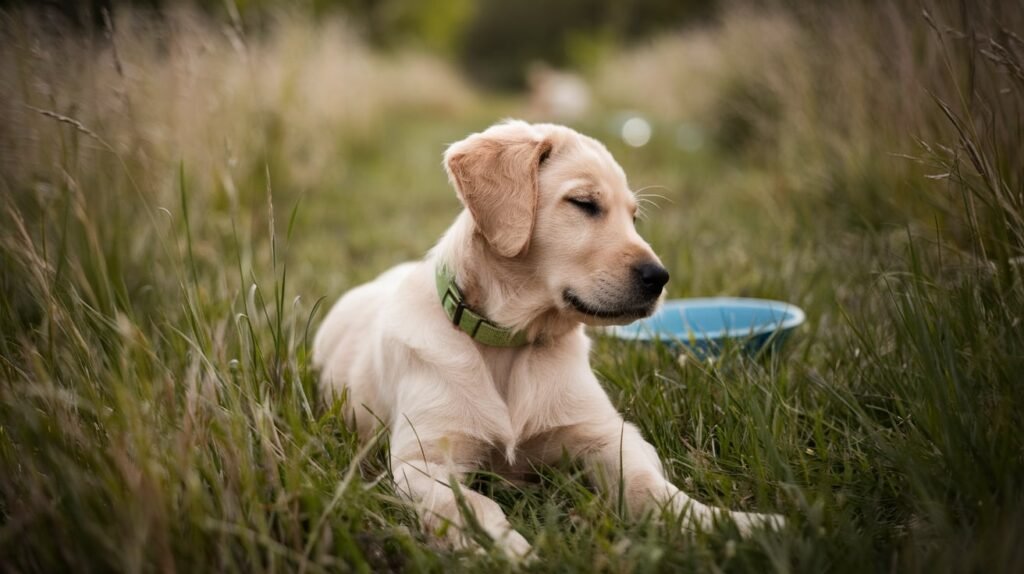Preparing your beloved dog for surgery can be a nerve-wracking experience. Whether it’s a routine desexing procedure, dental cleaning, or a more complex operation, one of the most important aspects of pre-operative care is fasting, specifically, knowing what time your dog should stop eating before surgery. This article walks you through everything you need to know, from vet-recommended fasting timelines to practical tips and common mistakes Aussie dog owners should avoid.
🕒 Why Is Fasting Important Before a Dog’s Surgery?
Fasting is a critical component of your dog’s surgical preparation. When your dog is under general anaesthesia, their gag reflex is suppressed. If there’s food in their stomach, there’s a risk of vomiting and aspiration – where vomit is inhaled into the lungs – which can cause serious complications or even be fatal.
Australian veterinarians follow guidelines developed through both international research and local veterinary standards. That’s why your Vet Surgery clinic will likely stress the importance of adhering to fasting instructions precisely.
⏰ General Rule: When Should Your Dog Stop Eating Before Surgery?
The typical recommendation is that dogs should stop eating at least 8 to 12 hours before their scheduled surgery. For most procedures:
- No food after midnight the night before surgery is the standard rule.
- Water is usually permitted until 2-3 hours before drop-off, unless otherwise specified.
For example:
If your dog’s surgery is scheduled for 8:00 AM, you should:
- Feed them no later than 8:00 PM the previous evening.
- Remove access to food (including treats) after that.
- Allow water until about 5:00 AM, unless your vet advises otherwise.
🐾 Are There Any Exceptions to This Rule?
Yes – there are some exceptions, and it’s crucial to follow your specific veterinarian‘s instructions:
- Puppies and toy breeds may require a shorter fasting window because they’re more prone to hypoglycaemia (low blood sugar).
- Dogs with certain medical conditions, such as diabetes or gastrointestinal disorders, might need special consideration.
- Some newer protocols for anaesthesia and Vet Surgery procedures may include shorter fasting times for specific dogs, particularly in advanced veterinary hospitals in cities like Sydney, Melbourne, or Brisbane.
Always double-check the pre-operative fasting instructions provided by your vet.
🚫 Common Mistakes Dog Owners Make Before Surgery
- Sneaky snacks or treats: It’s easy to forget that a little biscuit or dental chew still counts as food. Even small treats can compromise your dog’s safety under anaesthesia.
- Feeding other pets nearby: If you have multiple pets, make sure your surgical dog doesn’t sneak a bite from a housemate’s bowl.
- Not removing access to food early enough: Dogs are resourceful and might find a way into bins, bags, or cupboards. Secure all sources of food.
💧 What About Water?
Water is typically allowed up until 2-3 hours before surgery. Dehydration can be risky, so don’t withhold water overnight unless explicitly told to do so by your vet.
Some vets may recommend taking the water bowl away first thing in the morning, especially if the surgery is early.
📝 Tips to Help Your Dog Fast Safely and Comfortably
- Feed dinner a little earlier the night before so your dog has time to digest.
- Keep your dog occupied with gentle play or cuddles instead of offering food.
- Inform all family members about the fasting instructions so no one accidentally gives snacks.
- Label the calendar or set reminders on your phone for food and water removal.
🩺 What to Do on the Morning of the Surgery
- Double-check your fasting timeline.
- Ensure your dog hasn’t eaten anything unexpectedly.
- Pack any necessary paperwork, medications, or comfort items for your dog’s stay.
- Arrive on time and calm – your dog will sense your energy.
🐶 What If My Dog Accidentally Ate Before Surgery?
If your dog eats within the fasting window – even a small amount – you must inform your vet immediately. Surgery may need to be delayed or adjusted to reduce the risk of complications.
Don’t be embarrassed; vets understand accidents happen. Transparency is essential for the safety of your furry friend.
🏥 Trust Your Local Veterinary Professionals
Each Vet Surgery clinic may have slightly different protocols based on your dog’s breed, age, and health history. It’s always best to get personalised advice directly from your vet. Australian veterinary clinics are well-equipped to guide you through the process with compassion and professionalism.
📌 Key Takeaways: Fasting Your Dog Before Surgery
- No food 8-12 hours before surgery, usually from midnight.
- Water is okay until 2-3 hours before, unless advised otherwise.
- Puppies and special cases may require modified fasting times.
- Avoid all treats, scraps, and sneaky snacks during the fasting window.
- Communicate with your vet if anything goes wrong or seems unclear.
🐾 Final Thoughts
Preparing your dog for surgery involves more than just showing up on the day. By understanding and following fasting guidelines, you’re playing a critical role in your pet’s safety and wellbeing. Whether it’s a routine desexing at your local clinic or a more complex procedure at a specialist veterinary surgery centre, knowing when your dog should stop eating before surgery is vital.
When in doubt, always contact your trusted Aussie vet – they’re your best resource for ensuring your dog gets the best care possible.





